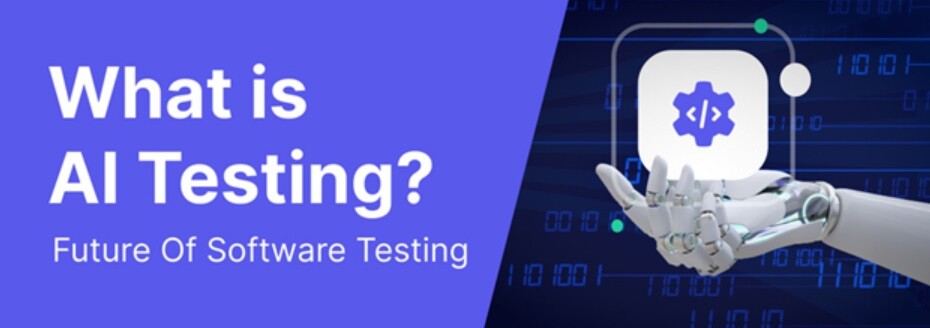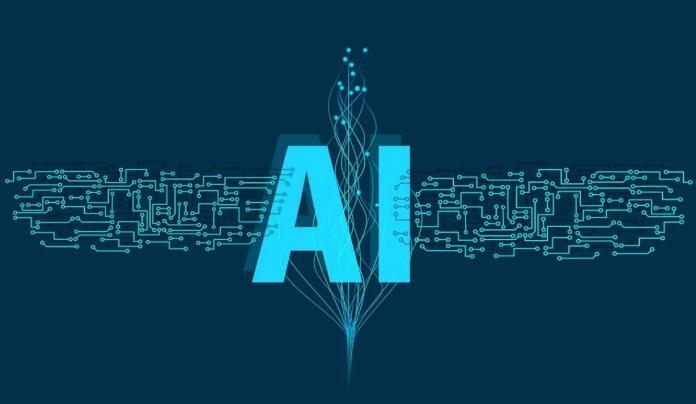An Overview of AI-Driven Testing
In the contemporary, dynamic technological environment, the necessity for dependable and effective software testing has grown substantially. With the increasing complexity of software systems, conventional testing methodologies may prove inadequate in detecting crucial flaws and guaranteeing the overall quality of the software. This is where testing powered by AI becomes relevant.
What is AI?
Artificial Intelligence (AI) is the emulation of human intelligence through programming machines to think and learn just as humans do. The many practices that are involved in it incorporate computer vision, natural language processing, and machine learning. Artificial intelligence involves the ability of computers to perform actions that would typically require human intelligence like discerning patterns, selecting choices, and finding solutions.

Define AI testing
AI-powered testing, alternatively referred to as cognitive testing, optimizes and mechanizes the software testing procedure through the utilization of AI methodologies. Its execution entails the application of intelligent algorithms and machine learning models to predict the quality and behavior of software systems, identify patterns in the data, and analyze patterns. Testing with artificial intelligence can substantially accelerate the testing procedure, increase test coverage, and detect flaws that manual testing methods may overlook.

Advantages of Employing AI in Testing
There is a wide range of benefits that can be gained from incorporating AI-driven testing into software quality assurance activities. As a result, including:
• Increased test coverage: Testing with AI can deal with vast volumes of data, and process hundreds of test cases that improve the coverage ratio compared to manual/traditional mode. This provides for the examination of various scenarios and edge cases, an aspect that enhances software dependability.
• Faster time to market: Organizations can use AI-powered testing to speed up the software development lifecycle. It allows us to automate repetitive things and do parallel testing that results in quicker defect detection and resolution. As an outcome, the releases become faster and the time to market is less.
• Improved accuracy: Using their precision, AI algorithms can analyze complex data sets and patterns removing human error. It eliminates the risk of manual mistakes by automating repetitive and mundane testing tasks leading to more accurate results and thus better software quality.
• Cost-effective: Although, the initial setup of AI-powered testing may involve a cost, the benefits to be reaped in the long term outweigh such costs. This goes a long way in reducing their employees’ effort and resulting in more efficiency which eventually saves the organization lots of other expenses.
ChatGPT Application in Software Testing

An exemplary instance of testing facilitated by AI is the implementation of ChatGPT, a language model created by OpenAI. ChatGPT is trained using an extensive corpus of text data obtained from the internet and is built upon the GPT-3 architecture. It converses and generates responses resembling those of humans, qualities that make it an invaluable instrument for software testing.
ChatGPT can be employed in a multitude of methods throughout the testing phase. By simulating user interactions with the software, evaluators can verify the accuracy of the system’s responses. ChatGPT is capable of identifying potential issues, discovering flaws, and providing insightful information regarding the behavior of the software via automated conversations. By employing this methodology, the software’s overall quality is improved, and the user is guaranteed a seamless experience.
Tools Powered by AI for AI Testing
Numerous instruments on the market are powered by AI and intended to aid in AI testing. By utilizing intelligent algorithms and machine learning, these tools automate the testing process, analyze data, and produce actionable insights. Prominent AI-powered testing instruments consist of the following:
Testim: An AI-Based Testing Platform for Automatically Creating and Maintaining Test Cases. The tool can analyze the pattern of user behavior, identify testing scenarios, and generate corresponding test scripts. Testim also offers the tester feedback on the results of a test in real-time, thus, making it easy to identify and solve issues developed.
Applitools: Applitools applies computer vision algorithms with its visual AI testing platform to verify the visuals in software applications. This includes automatically detecting visual bugs like layout issues, broken images, and inconsistent UI elements. Applitools is also versatile supporting most platforms and frameworks.
Functionize: This is Functionize, an AI-based testing platform that marries machine learning and natural language processing to create test automation opportunities. For example, it can interpret user actions and generate tests according to expected behavior. Functionize also includes smart test maintenance that facilitates smooth upgrading of the test scripts whenever there is a change in application.
TestCraft: TestCraft is a powerful AI-driven automated testing platform that revolutionizes regression and continuous testing with its widespread API Web Testing Services monitoring features and the power of Selenium. Finally, they employ AI software to ensure swift adaptation to changes in the app, thus minimizing time and expenditures related to maintenance.

Katalon: The Katalon Platform is an end-to-end quality management platform for web, API, desktop, and mobile applications in a wide range of environments that simplify the creation, pertinence expertise, and minimum engineering requirements to make tests. AI features are available for the AI-powered testing platform Katalon.
Methods for Testing AI Systems
The testing of AI systems differs marginally from the testing of conventional software. Key considerations and recommended practices for testing AI systems are as follows:
• Data quality: AI systems depend on data for training and predictions. Quality, accuracy, and diversity of data used during the testing process are therefore crucial. The training data should be meticulously selected and validated by testers to eliminate biased or skewed results.
• Model validation: AI models require a lot of validation to make sure they are accurate and reliable. Both boundary conditions and inputs should be tested for as many situations as possible to expose any potential problems or restrictions. Validation of the model should involve positive test cases as well as negative test cases that reflect different possible behaviors of the model – not just a single scenario.
• Ethical considerations: AI systems can have an influence on people and the whole of society. Ethical aspects should be taken into account when testing any treatment. The fairness, transparency, and possible biases of the system should be established by testers. They should also ensure adherence to the laws and regulations.
Final Note
In the dynamic realm of software development, it is imperative to adopt AI-driven testing to maintain a competitive edge. There are numerous advantages to utilizing AI for testing, such as increased test coverage, accelerated time to market, enhanced precision, and cost-effectiveness. Applications such as ChatGPT, Testim, Functionize, and Applitools offer significant support in the automation and improvement of the testing procedure.
Nevertheless, the evaluation of AI systems necessitates a methodical approach that takes into account ethical concerns, model validation, and data quality. By implementing these recommended strategies, businesses can guarantee the dependability and excellence of their AI-driven software systems. Adopting AI-driven testing is not only a prudent decision but also an imperative one to satisfy the requirements of the contemporary software development sector.
You may also like,








